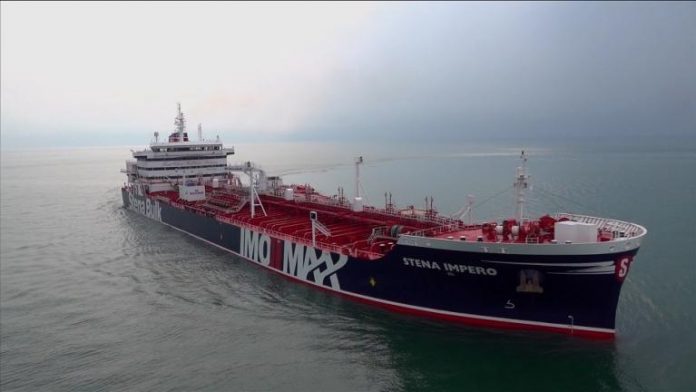Iran said Sunday it considered Britain’s seizure of an Iranian oil tanker a breach of the ailing 2015 nuclear deal, as the remaining parties to the accord meet in Vienna in another attempt to salvage the agreement.
British authorities detained an Iranian tanker off the UK overseas territory of Gibraltar in early July on allegations it was breaching EU sanctions on Syria.
On July 19, a British-flagged tanker was impounded by Iran’s Revolutionary Guards with its 23 crew aboard in the Strait of Hormuz, which was seen by the UK as a tit-for-tat move.
Arriving at the meeting in Vienna, Iranian Deputy Foreign Minister Abbas Araghchi linked the tanker row to discussions over the nuclear deal, formally known as the Joint Comprehensive Plan of Action (JCPOA).
“Developments have occurred, such as the seizure of the tanker carrying Iranian oil in Gibraltar, which in our view is considered a breach of the JCPOA,” Araghchi said in comments carried on Iranian state TV.
“Countries party to the JCPOA must not create any obstacles in the way of Iran exporting its oil,” he added.
Araghchi was speaking as envoys from Britain, France, Germany, China, Russia and Iran gathered for talks in the Austrian capital, a month after a similar meeting failed to achieve a breakthrough.
Tensions between Tehran and Washington have escalated since last year when US President Donald Trump pulled out of the accord that was aimed at curbing Iran’s nuclear programme, and imposed punishing sanctions.
Iran said in May it would disregard certain limits the JCPOA set on its nuclear programme and threatened to take further measures if remaining parties to the deal, especially European nations, did not help it circumvent the US sanctions.
Even before the latest tanker seizures, pressure had been mounting in the region with a string of incidents involving tankers and drones.
The US has said it brought down one and possibly two Iranian drones last week, and blamed Tehran for a series of mysterious attacks on tanker ships in strategic Gulf waters.
Iran shot down an unmanned US aircraft in June, after which Trump announced that he had called off retaliatory air strikes at the last minute because the resulting death toll would have been too high.
The US and Gulf powerhouse Saudi Arabia have accused Iran of being behind multiple attacks on tankers in the Gulf in June, which Iran denies.
Efforts by European powers, notably France’s President Emmanuel Macron, to salvage the nuclear deal have so far come to nothing.
The remaining signatories, however, have pledged to work towards a breakthrough at a future ministerial session, for which no date has yet been fixed.
Referring to the need for a “preparatory meeting before the ministerial level meeting that will be necessary”, one European diplomat told AFP it was “imperative to talk to the Iranians after the proven violations of their commitments”.
The European Union said earlier this week the extraordinary meeting would be chaired by the secretary general of the European External Action Service, Helga Schmid.
It said the talks were requested by Britain, France, Germany and Iran and would examine issues linked to the implementation of the JCPOA.
















